
Understanding Squatters: What They Are And How They Affect Property Rights
Squatters are people who illegally occupy and live on property without the owner’s permission. Squatters can pose a serious threat to property rights, despite their perceived harmlessness.
According to Texas law, squatters are trespassers who can impede property owners’ ability to use and maintain their land. Squatting can also cause financial losses for property owners, as they may be held liable for any damages caused by squatters.
Understanding how squatters affect property rights is crucial for preventing and addressing this issue in Texas.
TABLE OF CONTENTS
- Understanding Squatters: What They Are And How They Affect Property Rights
- The Legal Concept Of Squatter’s Rights: Exploring Its Definition And Implications
- Navigating The Law Of Adverse Possession For Squatters In Texas
- Proactive Measures: How To Prevent Squatters From Taking Over Your Property
- Evicting Squatters In Texas: Steps And Considerations
- Defining A Squatter: Who Qualifies As A “Squatter” Under The Law?
- Differentiating Between Squatting And Trespassing: Legal Distinctions And Consequences
- Holdover Tenants Vs. Squatters: Understanding The Difference
- Gaining Possession Of A Property In Texas: How Can A Squatter Legally Obtain Ownership?
- Keeping Squatters Out: Effective Strategies For Property Owners
- Removing Unwanted Occupants: What You Need To Know About Evicting Squatters
- How To Prevent Squatters In Texas?
- Can You Forcibly Remove A Squatter In Texas?
- Can Police Remove Squatters In Texas?
- What Is The Difference Between A Squatter And A Trespasser In Texas?
- Can You Turn Off Utilities On A Squatter Texas?
The Legal Concept Of Squatter’s Rights: Exploring Its Definition And Implications
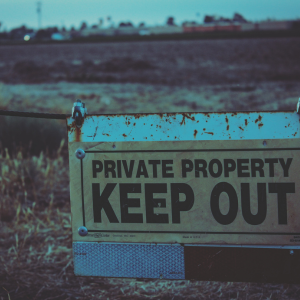
Squatter’s rights are a legal concept that has serious consequences for Texas property owners. Squatter’s rights are the right of a person to occupy and use someone else’s property without their permission or legal ownership.
This happens when someone stays on a property for too long without being evicted by the owner. Texas has specific laws and procedures in place to protect property owners from squatters, but understanding these laws is critical to avoiding any potential problems.
Property owners should know their rights and take proactive measures to prevent squatters from occupying their land or buildings.
Navigating The Law Of Adverse Possession For Squatters In Texas
Understanding the law of adverse possession is critical for protecting your property from squatters in Texas. This legal concept allows someone to gain ownership of a property by openly occupying it for a set period of time without the owner’s permission.
In Texas, the time frame is ten years. To prevent squatters from abusing the law, property owners must regularly inspect their property and remove any unauthorized occupants.
It is also recommended that documentation of any attempts to evict squatters or reclaim property be kept. Staying up to date on changes in Texas’ adverse possession laws can help property owners protect their assets.
Proactive Measures: How To Prevent Squatters From Taking Over Your Property
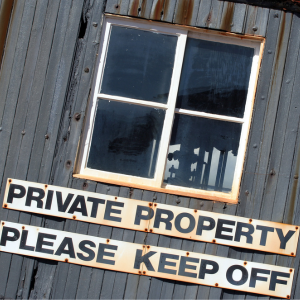
As a Texas property owner, you must take proactive steps to prevent squatters from occupying your property. Regularly inspecting and maintaining your property is an effective way to accomplish this.
This includes ensuring the security of all locks and windows, as well as repairing any damage or vulnerabilities. Keep an eye out for signs of potential squatting, such as unauthorized individuals or unusual activity.
Consider installing security cameras or hiring a security company to monitor your property. Another proactive step is to communicate with your neighbors on a regular basis and set up a neighborhood watch program.
Working together, you can keep an eye out for any suspicious activity and keep squatters from settling on your block. Finally, it is critical to stay current on the laws and processes governing squatter removal in Texas so that you can take immediate action if necessary.
Evicting Squatters In Texas: Steps And Considerations
Squatters can cause major problems for Texas property owners because they can quickly take over and occupy a space without permission. As a result, it is critical for property owners to understand the necessary steps and considerations when evicting squatters in Texas.
The first step is to determine whether the people on the property are squatters or legitimate tenants. If squatters are identified, they must receive a written eviction notice with required information under Texas law.
It is also critical to document any attempts to communicate or negotiate with the squatters. If squatters refuse to leave, legal action may be necessary.
Proper legal procedures must be followed by property owners in Texas to successfully evict squatters and protect their property.
Defining A Squatter: Who Qualifies As A “Squatter” Under The Law?
Squatters can pose significant problems for Texas property owners because they can quickly take over and occupy a space without permission. As a result, property owners must understand the steps and considerations involved in evicting squatters in Texas.
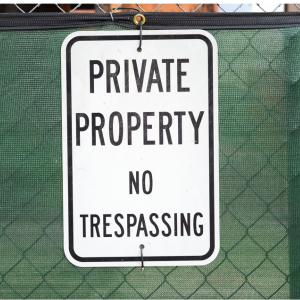
The first step is to figure out whether the people on the property are squatters or legitimate tenants. If squatters are identified, they must be served with a written eviction notice containing the required information under Texas law.
It is also critical to document any attempts at communication or negotiation with the squatters. If the squatters refuse to leave, legal action may be required.
Property owners in Texas must follow proper legal procedures when evicting squatters and protecting their property.
Differentiating Between Squatting And Trespassing: Legal Distinctions And Consequences
Understanding the legal distinctions between squatting and trespassing is crucial for protecting your Texas property. Squatting is the act of occupying someone else’s property without their permission with the intent to make it their own.
Trespassing occurs when someone enters or remains on another person’s property without their permission. While both are illegal, there are significant differences in the penalties and legal actions that can be taken against squatters and trespassers.
Trespassing is typically a misdemeanor offense, whereas squatting can result in civil or criminal charges. Property owners must understand these distinctions in order to effectively protect their land from potential squatters and trespassers.
Holdover Tenants Vs. Squatters: Understanding The Difference
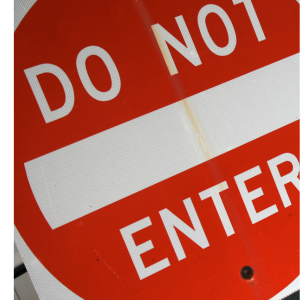
When it comes to protecting your property in Texas, it is essential to have a solid understanding of the distinction between squatters and holdover tenants.
Despite the fact that both may appear to be unwelcome occupants, they are legally distinct and require different approaches in order to be driven out of the property.
Individuals who continue to reside on a property after the expiration of their lease are referred to as holdover tenants. Squatters, on the other hand, are individuals who unlawfully occupy a property without the permission of the owner.
When it comes to preventing squatting and protecting your property rights as a landlord or homeowner, it is essential to have a solid understanding of how to handle each situation.
Gaining Possession Of A Property In Texas: How Can A Squatter Legally Obtain Ownership?
Squatters in Texas are individuals who enter and occupy property without permission or legal standing. Property owners must be aware of existing laws and procedures in order to prevent squatters from occupying their property.
Squatters in Texas must meet certain requirements before they can legally own a property, including living on it for at least ten years and openly claiming ownership. Even if these requirements are met, the rightful owner can take steps to reclaim possession of their property.
These could include an adverse possession lawsuit or eviction proceedings. Property owners must be aware of their rights and take the necessary precautions to safeguard their property from potential squatters.
Keeping Squatters Out: Effective Strategies For Property Owners
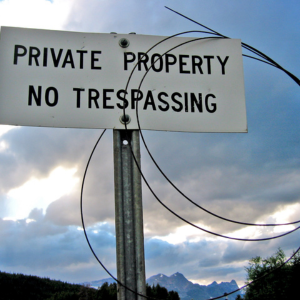
Texas property owners must be vigilant against squatters. Untreated squatters can damage your property, cause legal issues, and take ownership.
Several effective strategies can prevent this. First, inspect and fix any problems that may attract squatters.
Installation of security cameras and proper lighting around your property can deter squatting. Maintain clear and up-to-date documentation of your ownership and property use agreements.
Keep up with local squatter rights laws to act quickly if needed. Take these steps to deter squatters and protect your Texas property.
Removing Unwanted Occupants: What You Need To Know About Evicting Squatters
If you own property in Texas, one of your top concerns may be preventing squatters from taking over your property. Even with preventive measures in place, unwanted occupants may try to claim your property as their own.
In such cases, it is critical to understand the proper steps for evicting squatters. The first step is to determine whether the person or people on your property are considered squatters under Texas law.
To evict a tenant, you must serve a notice to vacate and file a lawsuit if they do not comply. It is important to note that self-help methods like changing locks or turning off utilities are illegal and may result in legal ramifications for the property owner.
Understanding the eviction process and working with a reputable attorney will help you protect your property from unwanted occupants while also retaining ownership of your valuable asset.
How To Prevent Squatters In Texas?
Squatters can be a major headache for Texas property owners, causing extensive damage and legal issues. You can, however, protect your property and keep squatters at bay by implementing the proper strategies.
The first step is to secure your property by installing proper fencing and locks that prevent unauthorized individuals from entering. Check on your property on a regular basis and respond to any potential vulnerabilities as soon as possible.
Consider hiring a reputable property management company to oversee your property and handle any problems that may arise. Educating yourself on Texas squatter laws is crucial for properly evicting any trespassers.
By following these tips and remaining vigilant, you can effectively protect your Texas property from squatters.
Can You Forcibly Remove A Squatter In Texas?
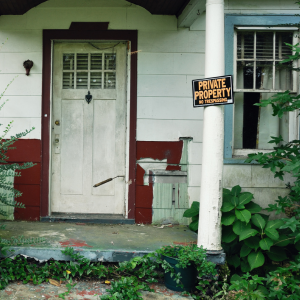
Squatters pose a significant threat to property in Texas. These people may try to illegally occupy your property without permission or payment, causing damage and disrupting your rights as a property owner.
As a result, it is critical to understand your rights and options in dealing with squatters in Texas. One frequently asked question is whether you can forcibly remove a squatter from your property.
In Texas, the answer is yes, but there are specific legal procedures that must be followed to do so effectively and avoid potential legal ramifications. To protect your property from the dangers of squatting, you must first understand these procedures and be prepared to take action if needed.
Can Police Remove Squatters In Texas?
Squatting, or occupying property without permission or legal right, is a growing concern for Texas property owners. Many people wonder if they have any options for removing squatters from their properties.
Yes, with local law enforcement’s help. Under certain conditions, Texas police can remove squatters from private property.
Property owners must, however, understand the proper procedures and laws surrounding squatter eviction in order to protect their property and avoid legal ramifications. This article will be the ultimate guide to squatter prevention in Texas, providing valuable insights into how to effectively collaborate with law enforcement to protect your property from unwanted occupants.
What Is The Difference Between A Squatter And A Trespasser In Texas?
In Texas, property owners frequently face the challenge of protecting their land from unauthorized individuals. While the terms “squatter” and “trespasser” are often used interchangeably, there is a significant legal distinction between the two.
A squatter is someone who occupies a property without permission or legal right to do so, whereas a trespasser is anyone who enters the property without permission. The key distinction is the intention of the person on the property; a squatter intends to take control and possession of the land, whereas a trespasser may not have such intent.
Understanding this distinction is critical for Texas property owners who want to keep both types of unwanted people off their land.
Can You Turn Off Utilities On A Squatter Texas?
One of the most effective ways to keep squatters from taking over your Texas property is to cut off their access to utilities. This includes water, electricity, gas, and any other services used without permission.
This will make it very difficult for them to continue squatting on your property. However, it is important to note that when turning off utilities for squatters, certain legal guidelines must be followed.
It is recommended that you seek the advice of a legal professional before taking this step. Furthermore, documenting all attempts to contact the squatters and giving notice of the utility shut-off can help your case if legal action is required.
To prevent squatters in Texas, property owners should be proactive and knowledgeable about their rights.
These details apply to all of Texas, including cities like Houston, Irving, Dallas, Arlington, and Fort Worth, as well as their surrounding areas. For additional assistance or specific inquiries, call us at (800) 467-0003. Visit our website, Sell My House Fast Now, for more information and a full description of our services.
More Resources For Sellers In Texas
| PROPERTIES | SQUATTERS’ RIGHTS | SQUATTERS RIGHTS | SQUATTER’S RIGHTS | NOTORIOUS POSSESSION | EXCLUSIVE POSSESSION |
| PROPERTY OWNERSHIP | TENANCY | TAXES | PROPERTY TAXES | SHERIFF | |
| LEASE OR RENTAL AGREEMENT | ATTORNEYS | LAWYER | REAL ESTATE | LEGAL RIGHTS | LANDOWNER |
| JUDGMENT | GOOD FAITH | DEED | CRIMINAL OFFENSE | ACRES | AN ADVERSE POSSESSION |
| ADVERSE POSSESSION CLAIM | IN TEXAS A SQUATTER | MAKE AN ADVERSE POSSESSION | AN ADVERSE POSSESSION CLAIM |


